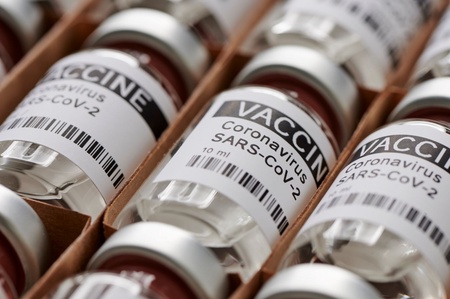The main factors that influence Covid vaccine uptake among ethnic minority groups have been identified in a study published today.
With uptake of the Covid-19 vaccine consistently lower among some ethnic minority groups than among the general population, the Collaboration for Change Project team sought to identify factors that influence uptake of vaccines in this group and identify strategies that may increase it.
Three key factors were identified: lack of trust in organisations and individuals who advise on, or promote vaccine uptake; lack of culturally and linguistically appropriate information; and inconvenient locations and timings of vaccine appointments.
Led by Professor Shaun Treweek from the University of Aberdeen, the Collaboration for Change: Promoting Vaccine Uptake project was funded by the Economic and Social Research Council (ESRC) as part of UK Research & Innovation (UKRI)’s rapid response to Covid-19.
Professor Treweek explains: “Management of Covid-19 relies on a high level of vaccine uptake.
"Knowing why uptake is lower amongst some ethnic minority groups will make it easier to develop approaches that provide reassurance and enable more people to accept the offer of a vaccine.
“Redressing this imbalance will help both the individual and society as a whole.”
The collaboration included the University of Aberdeen and University College London, five community organisations based in Leicester, London, and Manchester, two patient-engagement focused small and medium size enterprises, health services and educational researchers at the two universities, and four additional community organisation partners based in Glasgow, Ipswich and Suffolk, London, and Rotherham. The unique, broad-reaching team joined forces to investigate and improve the disparity in vaccine uptake.
The project involved a sweep of all relevant international research, in combination with discussions and accounts of lived experiences gathered from ethnic minority communities.
The team then used their findings to identify strategies that can be used to help address each of the main factors. Three strategies were proposed: using trusted messengers to provide information; tailoring the message both culturally and linguistically and ensuring relevant issues are covered; and providing flexible venues and times for vaccination.
Professor Treweek adds: “It is important vaccine uptake is as high as it can be here in the UK and elsewhere.
“Any approach to increasing vaccine uptake in ethnic minority groups needs to consider the factors and strategies we list.
"Moreover, it is essential that organisations promoting vaccine uptake work with ethnic minority communities and organisations to tailor strategies appropriately.”
The full results are available at https://www.collaborationforchange.co.uk.
ENDS


